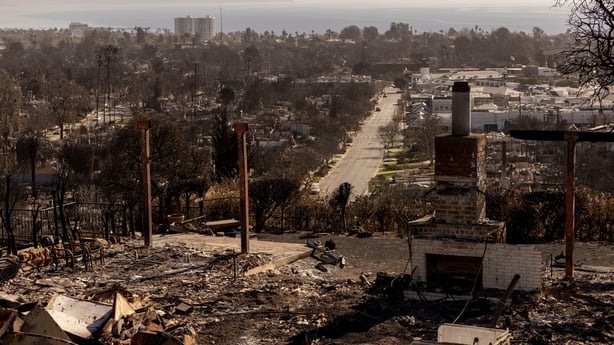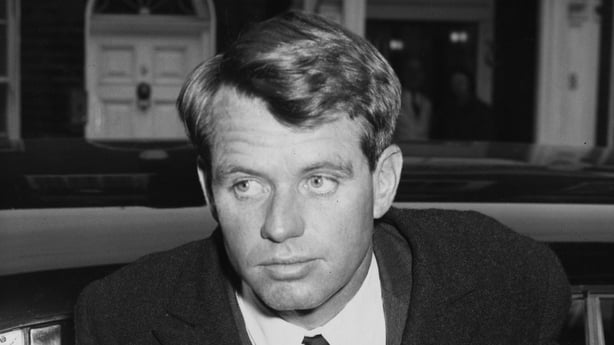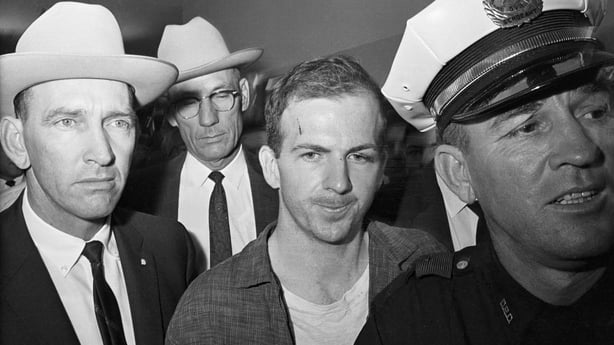US President Donald Trump visited disaster-hit western North Carolina and was travelling later to Los Angeles, promising help while stoking partisan tensions with Democratic rivals over recovery efforts.
Mr Trump's first trip since reclaiming the presidency could provide an opportunity to assure residents that the federal government will help those whose lives have been upended by hurricanes, wildfires and other natural disasters.
On arrival in Asheville, North Carolina, he sharply attacked the Federal Emergency Management Agency's handling of the after-effects of September's Hurricane Helene. FEMA was run by then-President Joe Biden's administration for the last four years.
During a briefing about recovery efforts, the Republican president promised to speedily help North Carolina "get the help you need" to rebuild.
He said he would prefer the states be given federal money to handle disasters themselves rather than rely on FEMA to do the job.
He said he would sign an executive order aimed at what he said would address problems inherent to FEMA.
"I think we're going to recommend that FEMA go away," he said.
Mr Trump complained that Mr Biden did not do enough to help western North Carolina recover from the hurricane, an accusation the Biden administration rejected as misinformation.
Mr Trump also sharply criticised Democratic officials' response to wildfires in LA that have caused widespread destruction this month.
His Republican colleagues in Congress have threatened to withhold disaster aid for the region.
Mr Trump was due to visit LA while three massive blazes still threaten the region.
In an interview with Fox News on Wednesday, Mr Trump also threatened to withhold aid and repeated a false claim that California Governor Gavin Newsom and other officials have refused to provide water from the northern part of the state to fight the fires.
"I don't think we should give California anything until they let the water flow down," Mr Trump said.
He has falsely claimed that Newsom, a Democrat, prioritised the preservation of endangered fish over public safety.
Mr Newsom has said there is no connection between the fish and the fire.
The governor told reporters yesterday that he planned to be on hand at Los Angeles International Airport to greet Mr Trump.

"I look forward to being there on the tarmac to thank the president and welcome him," he said.
Mr Trump has accused Mr Newsom and Los Angeles Mayor Karen Bass -who was out of the country when the fires broke out - of "gross incompetence," pointing to what he called a lack of preparation and ineffective or harmful water management policies.
"It's ashes, and Gavin Newscum (sic) should resign. This is all his fault!!!," Mr Trump wrote on his Truth Social platform, denigrating the governor by misspelling his name.
Water shortages caused some hydrants to run dry in affluent Pacific Palisades, hindering the early response.
When the fires broke out, one of the reservoirs that could have supplied more water to the area was empty for a year. Officials have promised an investigation into why it was dry.
Mayor Bass and fire officials have said the hydrants were not designed to deal with such a massive disaster, and stressed the unprecedented nature of the fires.
Mr Trump has focused some of his criticism on California's complicated policies for sharing the plentiful water supply found in the northern part of the state with the parched south.
The diversion results in the discharge of some water into the ocean, something Mr Trump has depicted as a callous waste.
Mr Newsom has dismissed those attacks as groundless, and experts have said that the diversions, in part designed to protect agricultural interests, have played little or no part in the difficulties encountered in fighting the fires.
Since the fires broke out on 7 January, 28 people have died and nearly 16,000 structures were damaged or destroyed, authorities say.
Much of Southern California remains under a red-flag warning for extreme fire risk due to strong, dry winds.
We need your consent to load this rte-player contentWe use rte-player to manage extra content that can set cookies on your device and collect data about your activity. Please review their details and accept them to load the content.Manage Preferences
Earlier, Mr Trump has ordered the declassification of the last secret files on the assassination of president John F Kennedy, a case that still fuels conspiracy theories more than 60 years after his death.
Mr Trump signed an executive order that will also release documents on the 1960s assassinations of JFK's younger brother Robert F Kennedy and civil rights leader Martin Luther King Jr.
"That's a big one, huh? A lot of people have been waiting for this for years, for decades," Mr Trump told reporters as he signed the order in the Oval Office of the White House.
"Everything will be revealed."
After signing the order, Mr Trump passed the pen he used to an aide, saying "Give that to RFK Jr," JFK's nephew and the current president's nominee to become secretary of the Department of Health and Human Services.
The order Mr Trump signed requires the "full and complete release" of the JFK files, without redactions that he accepted back in 2017 when releasing most of the documents.
"It is in the national interest to finally release all records related to these assassinations without delay," the order said.
Mr Trump had previously promised to release the last of the files, most recently at his inauguration.
'Overwhelming evidence'
The US National Archives has released tens of thousands of records in recent years related to the 22 November 1963 assassination of president Kennedy but held thousands back, citing national security concerns.
It said at the time of the latest large-scale release, in December 2022, that 97% of the Kennedy records - which total five million pages - had now been made public.
The Warren Commission that investigated the shooting of the charismatic 46-year-old president determined that it was carried out by a former Marine sharpshooter, Lee Harvey Oswald, acting alone.
However, that formal conclusion has done little to quell speculation that a more sinister plot was behind Mr Kennedy's murder in Dallas, Texas, and the slow release of the government files has added fuel to various conspiracy theories.
Mr Trump's move is partly a gesture to one of the most prominent backers of those conspiracies - Robert F. Kennedy Jr himself.

RFK Jr said in 2023 there was "overwhelming evidence the CIA was involved" in his uncle JFK's murder and "very convincing" evidence the agency was also behind the 1968 assassination of his own father, Robert F Kennedy.
The former attorney general was killed while campaigning for the Democratic nomination for president. Sirhan Sirhan, a Palestinian-born Jordanian, was convicted of his murder.
Anti-vaccine activist RFK Jr was rewarded with the health nod in Mr Trump's cabinet for dropping his independent presidential bid and backing the Republican, but he faces a rocky nomination process.
Conspiracy theories
Thousands of Mr Kennedy assassination-related documents from the National Archives were released during Mr Trump's first term in office, but he also held some back on national security grounds.
Then-president Joe Biden said at the time of the December 2022 documents release that a "limited" number of files would continue to be held back at the request of unspecified "agencies."
Previous requests to withhold documents have come from the CIA and FBI.

Kennedy scholars have said the documents still held by the archives are unlikely to contain any bombshell revelations or put to rest the rampant conspiracy theories about the assassination of the 35th US president.
Oswald, who had at one point defected to the Soviet Union, was shot to death two days after killing Mr Kennedy by a nightclub owner, Jack Ruby, as he was being transferred from the city jail.
Martin Luther King Jr was assassinated in April 1968 in Memphis, Tennessee.
James Earl Ray was convicted of the murder and died in prison in 1998 but Mr King's children have expressed doubts in the past that Ray was the assassin.

